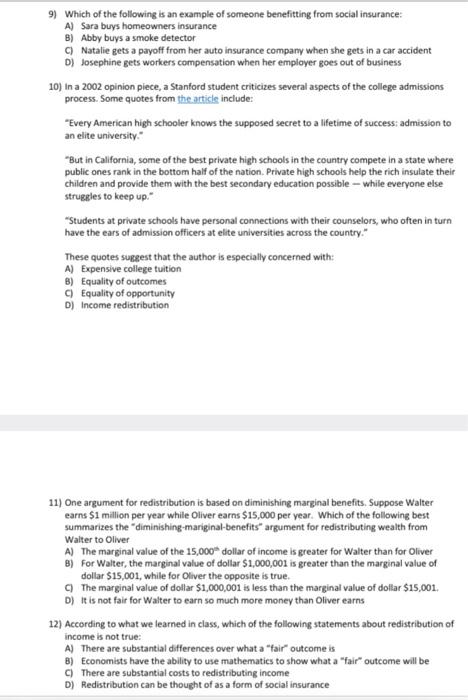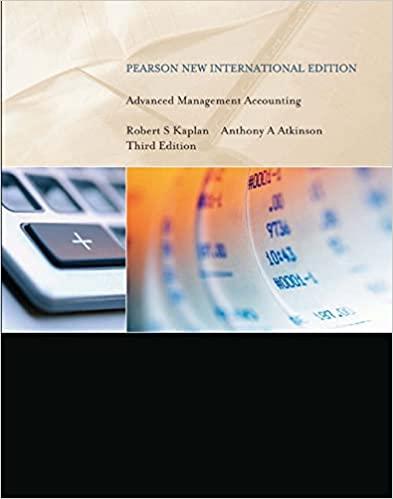9) Which of the following is an example of someone benefitting from social insurance: A) Sara buys homeowners insurance B) Abby buys a smoke detector C) Natalie gets a payoff from her auto insurance company when she gets in a car accident D) Josephine gets workers compensation when her employer goes out of business 10) In a 2002 opinion piece, a Stanford student criticizes several aspects of the college admissions process. Some quotes from the article include: "Every American high schooler knows the supposed secret to a lifetime of success: admission to an elite university." "But in California, some of the best private high schools in the country compete in a state where public ones rank in the bottom half of the nation. Private high schools heip the rich insulate their children and provide them with the best secondary education possible - while everyone else strugeles to keep up." "Students at private schools have personal connections with their counselors, who often in turn have the ears of admission officers at elite universities across the country." These quotes suggest that the author is especially concerned with: A) Expensive college tuition B) Equality of outcomes C) Equality of opportunity D) Income redistribution 11) One argument for redistribution is based on diminishing marginal benefits. Suppose Walter earns $1 million per year while Oliver earns $15,000 per year. Which of the following best summarizes the "diminishing-mariginal-benefits" argument for redistributing wealth from Walter to Oliver A) The marginal value of the 15,0005 dollar of income is greater for Walter than for Oliver B) For Walter, the marginal value of dollar $1,000,001 is greater than the marginal value of dollar $15,001, while for Oliver the opposite is true. C) The marginal value of dollar $1,000,001 is less than the marginal value of dollar $15,001. D) It is not fair for Walter to earn so much more money than Oliver earns 12) According to what we learned in class, which of the following statements about redistribution of income is not true: A) There are substantial differences over what a "fair" outcome is B) Economists have the ability to use mathematics to show what a "fair" outcome will be C) There are substantial costs to redistributing income D) Redistribution can be thought of as a form of social insurance







